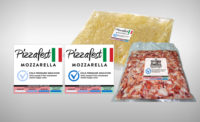As the refrigerated transport industry continues to evolve, advanced trucking technologies are hitting the market at a higher rate than ever before. The wide range of solutions is leaving manufacturers and distributors with an abundance of options and an even greater pressure to select the best solution available for their businesses.
In such a competitive environment, how can a company ensure it implements the most efficient and effective technologies?
To start, businesses need to understand how the changing regulatory landscape will impact its data tracking and temperature control needs.
Staying ahead of impending regulations
When it comes to food safety, businesses throughout the entire supply chain are being held to a higher standard of compliance for consumer protection. Within the food industry, quality assurance is largely determined by a product’s compliance with food safety laws, namely the Food Safety Modernization Act (FSMA).
Enforcement of food safety laws is very real. Within the first three weeks of 2015, the Food and Drug Administration (FDA) issued more than 30 food product recalls for lack of import inspection to extraneous material contamination and undeclared allergens. Every time a consumer sees that a food product is recalled, it breeds further public concern that food processors, distributors and law enforcement officials are not performing due diligence to ensure consumers’ safety and well-being.
The new laws aim to shift the FDA’s responsive food safety approach to one centered on prevention. As shown below, each component of the FSMA addresses one of four food safety fundamentals:
1. Preventative controls
2. Inspection and compliance
3. Imported food safety
4. Response
The first of the revised FSMA rules will be finalized and in effect later this year. Every sector of the food industry needs to ensure its personnel have a thorough understanding of the new policies in order to update current practices and ensure company compliance.
Under the preventative controls section, the rule on Sanitary Transportation of Human and Animal Food requires carriers to provide records verifying temperature conditions are maintained throughout the duration of shipments. To meet this standard, fleets need to recognize transparency of the supply chain as a top priority.
Taking advantage of technology
To help fleets adjust to the new FSMA regulations and ensure compliance, a solution now allows transporters to exhibit enhanced traceability throughout all parts of the shipping process. Direct drive units use advanced vehicle-powered technology to monitor temperatures of a shipment, verifying that a fleet has met safety protocols within the FSMA framework.
Unlike the simplified technology of cold plates and portable containers, direct drive units have the capacity to be programmed to precise temperatures. For example, frozen foods must be kept at 0°F or below, while fresh seafood can be maintained at 30-34°F. For fleets using cold plates, the saline solution within the device is manufactured to be set to one temperature at all times, meaning each truck can only transport a limited selection of products.
If a fleet wants to transport fresh shrimp one day and fresh produce (which requires a temperature of 41-45°F) the following day, a cold plate-dependent truck could not be used. These limiting characteristics ultimately lead to increased costs and lower fleet efficiency.
To accommodate temperature-sensitive foods, portable containers rely on ice. Yet, this method is neither sustainable (as ice needs to be replaced once it melts) nor does it allow for precise temperature regulation.
Direct drive units are compatible with smaller vehicles, do not require a commercial driver’s license to operate and weigh and cost significantly less than cold plates. For these reasons, locally-based companies with smaller fleets can benefit, in addition to businesses with distribution centers nationwide, from direct drive units.
Not only is technology rapidly advancing across all business sectors, but laws are also finally catching up to consumers’ standards of quality assurance. Food safety will remain at the forefront of discussions within the refrigerated transport industry, and leaders must proactively adapt to the changes brought forth by FSMA.
Direct drive technology is a solution that helps companies maintain peace of mind throughout every level of the supply chain, ultimately providing confidence and security to consumers.



